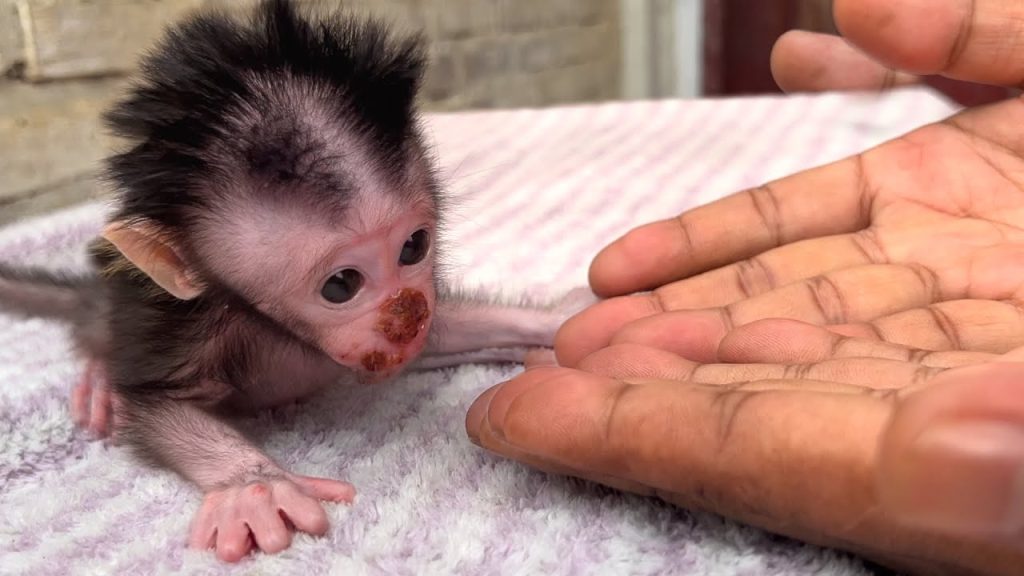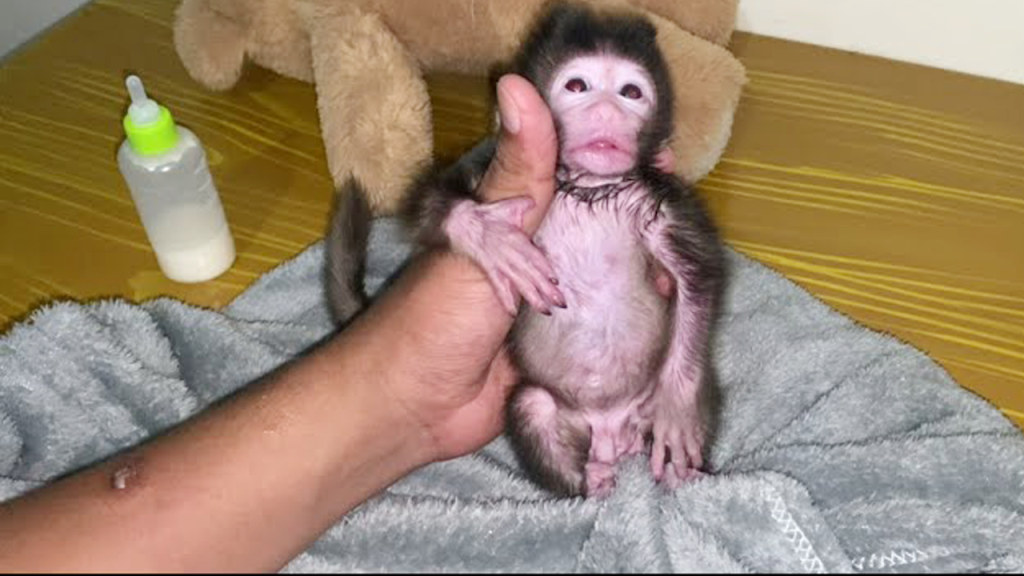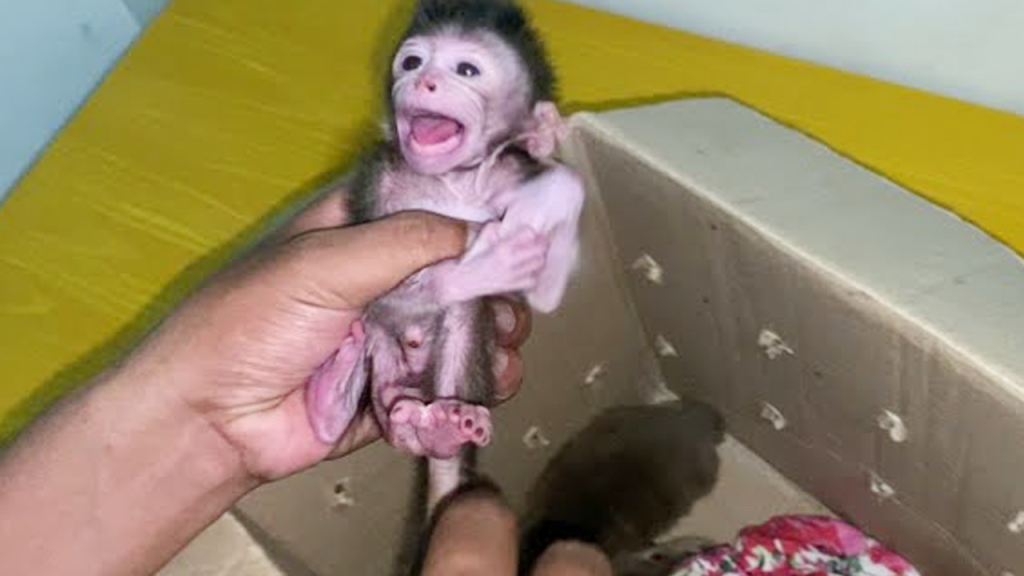In the natural course of a baby monkey’s life, weaning is a gradual process—a gentle shift from mother’s milk to solid food. But for one little monkey, this change came with shocking pain and emotional confusion. Angel, his mother, did not just refuse to nurse him—she began to hit and bite him whenever he tried to drink. What should have been a slow and loving transition turned into a heartbreaking experience of rejection.
The baby, still small and full of innocence, didn’t understand why his mother no longer offered milk. For his entire life, her body had been his safe place—his source of warmth, comfort, and food. But now, each time he approached her, nuzzling her belly in search of milk, Angel’s reaction was harsh and sudden. She would swat him away with a sharp hit or snap at him with her teeth, her face showing irritation rather than care.
This wasn’t simply a case of “no more milk.” It was emotional too. The baby’s cries after each rejection were not just from hunger, but from confusion. He would retreat a few steps, watching his mother from a distance, then try again—only to be pushed, bitten, or ignored. Each failed attempt chipped away at his sense of safety.
Why would Angel behave this way? In many primate species, weaning is a natural stage where mothers slowly reduce nursing to encourage independence. However, stress, overcrowding, poor nutrition, or hormonal shifts can cause some mothers to become aggressive instead of patient. In Angel’s case, the combination of being physically drained from nursing and perhaps feeling territorial over food or space could have triggered her harsh response.
Caretakers who observed the situation decided to step in. They began offering the baby soft fruits, mashed vegetables, and formula milk in a bottle—food that would not only nourish him but also comfort him after the sudden loss of maternal care. The first feedings were hesitant; the baby kept glancing at Angel, as if waiting for her permission. But hunger eventually won, and soon he began to accept the bottle, slowly building strength again.
Angel herself was monitored closely. While some mothers soften toward their babies after rest and better nutrition, others remain distant once the bond has been disrupted. Caretakers ensured that the baby could still remain near her for emotional familiarity, but without the risk of being harmed when he tried to nurse.
This sad chapter in the baby’s young life highlights a truth about the animal world—motherhood is not always gentle, and survival often depends on intervention. Yet, thanks to the compassion of those who stepped in, the little one now has a chance to grow healthy and strong, even if his journey to independence came with heartbreak.
For the baby, the loss of milk was more than just a change in diet—it was the end of his first source of love. But with care, safety, and patience, he can still learn that comfort and kindness exist beyond his mother’s rejection.


